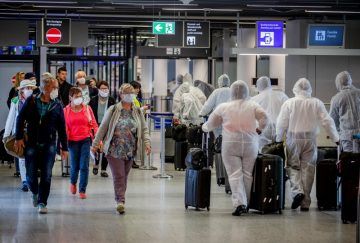Arjun Appadurai in Time:

Even in the heady early years of globalization back in the 1990s, scholars of the new trend were worried about its viral qualities: its speed, its ability to penetrate borders and regulations, its capacity to transform and even colonize the countries to which it came. I was one of these analysts. Though most of us thought globalization would likely be a largely positive force, we did not anticipate then that globalization could gradually become dangerous, infectious and hard to control.
Then came a spate of viruses that themselves seemed to be global travelers: HIV, the swine flu, mad cow disease, SARS, various brands of influenza, and now COVID-19. This last scourge is the most globalized in our history. Its speed of movement is matched only by the scale of its global reach. And it has unleashed an assault against globalization, with critics using the current pandemic as an example of how it can go wrong.
All of a sudden, many in media, academia and politics seem ready to hit the pause button on globalization. “Globalization is headed to the ICU,”a Foreign Policy column argued on March 9, while The Economist’s May 14 issue asked whether COVID-19 had killed globalization.
More here.
